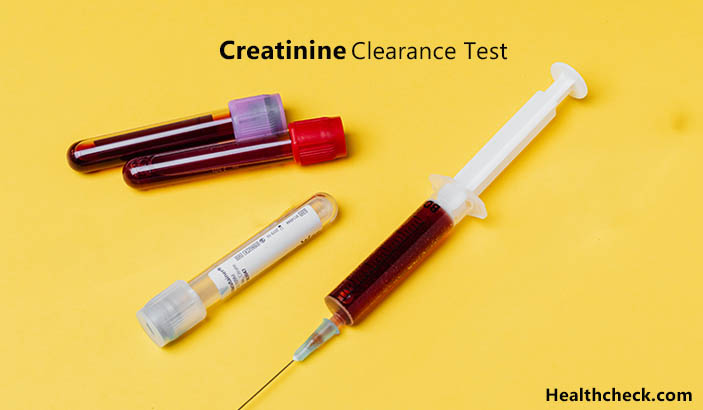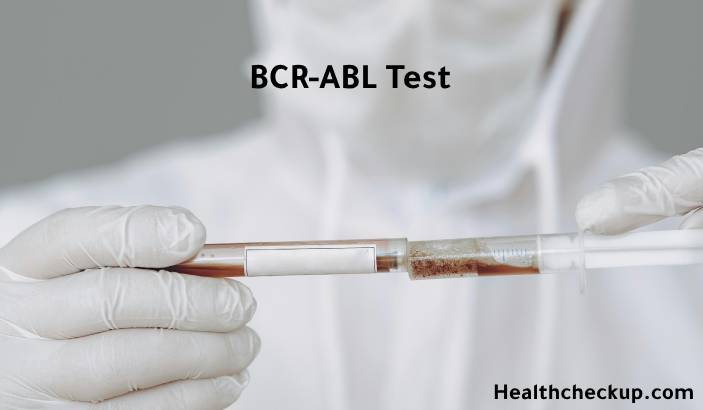The kidney is an important organ, and optimum functioning is required to sustain life. Various tests are available to check the functioning of the kidney. Creatinine clearance test is one such method to determine the filtering capacity of the kidney.
What Is A Creatinine Clearance Test?
Creatinine clearance test is the test done to evaluate the functioning of the kidney. Muscles use energy to function properly. This energy is supplied by creatine through a biological pathway. Creatinine is the waste product of this pathway. Kidney filters the creatinine from the blood. Accumulation of a high level of creatinine in the blood indicates kidney problems. Through a creatinine clearance test, the doctor determines the filtering capacity of kidneys. The doctor may also advise you to get the urine test done for creatinine levels in urine. Creatinine clearance test is one of the many methods that provide information about Glomerular Filtration Rate. Creatinine clearance test requires 24-hour urine collection.
Why Is The Creatinine Clearance Test Done?
The doctor may advise the creatinine clearance test to determine the functional capacity of your kidneys. The doctor may recommend this test if you have higher than normal creatinine levels in the blood during routine blood tests. Your doctor may also ask you to undergo a creatinine clearance test if you present the symptoms that indicate kidney disease. These symptoms are;
- If your urine is foamy and is coffee-colored.
- Alteration in urination frequency, especially during the night.
- Burning sensation while urinating
- Swollen ankles and feet and puffiness below the eyes.
- Tiredness, weakness, and fatigue.
- High blood pressure
- Presence of protein or blood in the urine
- Pain the back, near the mid-rib where the kidneys are situated
- Your doctor may also advise a routine creatinine clearance if you are at a risk for developing kidney disease, such as in case you suffer from congestive heart disease.
How Is The Creatinine Clearance Test Done?
The creatinine clearance test has two steps. In the first step, you must collect the urine over 24-hours. You can collect the urine at home. Do not forget to follow all the instructions from your doctor. In case you miss collecting urine once, contact your healthcare provider and take advice about continuing the collection or starting again the next day. Failure in collecting the complete urine for 24-hours may affect the results. This will help in determining the amount of creatinine that your kidney excretes throughout the day.
The next step is the blood test. Your doctor will draw your blood to determine the presence of creatinine in your blood. Determination of the amount of creatinine in your urine and blood and fitting the value in a formula may provide the creatinine clearance value.
Your doctor may instruct you to avoid eating food that has the potential to increase your creatinine level. The test is normally painless, with a stinging sensation while drawing blood being the only discomfort. Your doctor may also instruct you to stop taking medications such as some antibiotics and anti-acid pills, that may affect the test results.
Creatinine Clearance Test Normal Range
The creatinine clearance value is measured in milliliter per second or milliliter per minute. The normal value of creatinine clearance varies slightly between men and women. The normal range of creatinine clearance in males is 97 to 137 mL/min or 1.65 to 2.33 mL/sec. The normal range of creatinine clearance in the female is 88 to 128 mL/min or 14.96 to 2.18 mL/s. The value of creatinine clearance depends upon age, body size, and gender.
Creatinine Clearance Test High
A high creatinine level in the blood indicates kidney problems. The normal range of serum creatinine in males is 0.6 to 1.2 mg/dL and 0.5 to 1.1 mg/dL in females. The value above 1.2 mg/dL in males and above 1.2 mg/dL in females indicate a kidney problem. Some of the reasons for high serum creatinine levels are;
- Kidney infection
- Kidney failure
- Kidney stones
- Myasthenia gravis
Creatinine Clearance Test Low
Creatinine is the product of muscle breakdown. Thus, people with low muscle mass may have low creatinine levels. The conditions that may result in low serum creatinine value are muscle dystrophy, excess loss of water, and liver disease.
When To Worry About Creatinine Levels?
Your serum creatinine levels should be in the normal range. Altered creatinine levels may indicate a problem. If you have a higher or lower than normal creatinine level, consult with your doctor. Alteration in creatinine levels may be due to various conditions, including kidney disease.
Tips To Maintain Normal Creatinine Levels
Following are some of the tips that may help you in maintaining normal creatinine levels;
- Limit the amount of alcohol ad stop smoking
- Avoid supplements containing creatine.
- Eat fibrous food
- Limit the amount of salt intake
- Avoid excessive use of anti-inflammatory drugs.
- Limit the intake of protein
Conclusion
Creatinine clearance test involves collecting the urine for 24-hours and giving a blood sample. The doctor determines the level of creatinine in urine and blood and evaluates the creatinine clearance. Value depends upon gender, age, and size of the body.

Rohit Jain is an IPR Specialist and Medical Content Writing Expert. For over a decade, he has written several articles in the areas of female infertility, Erectile dysfunction, hemangioma, cervical cancer, monoclonal gammopathy of undetermined significance, mononucleosis, mitral valve disorder, nerve sheath tumor, shin splints, mild cognitive impairment, cellulitis, brain metastases, atelectasis, MCAD deficiency, lymphoma, sepsis, cardiac rehabilitation and metabolic disorder among others.








